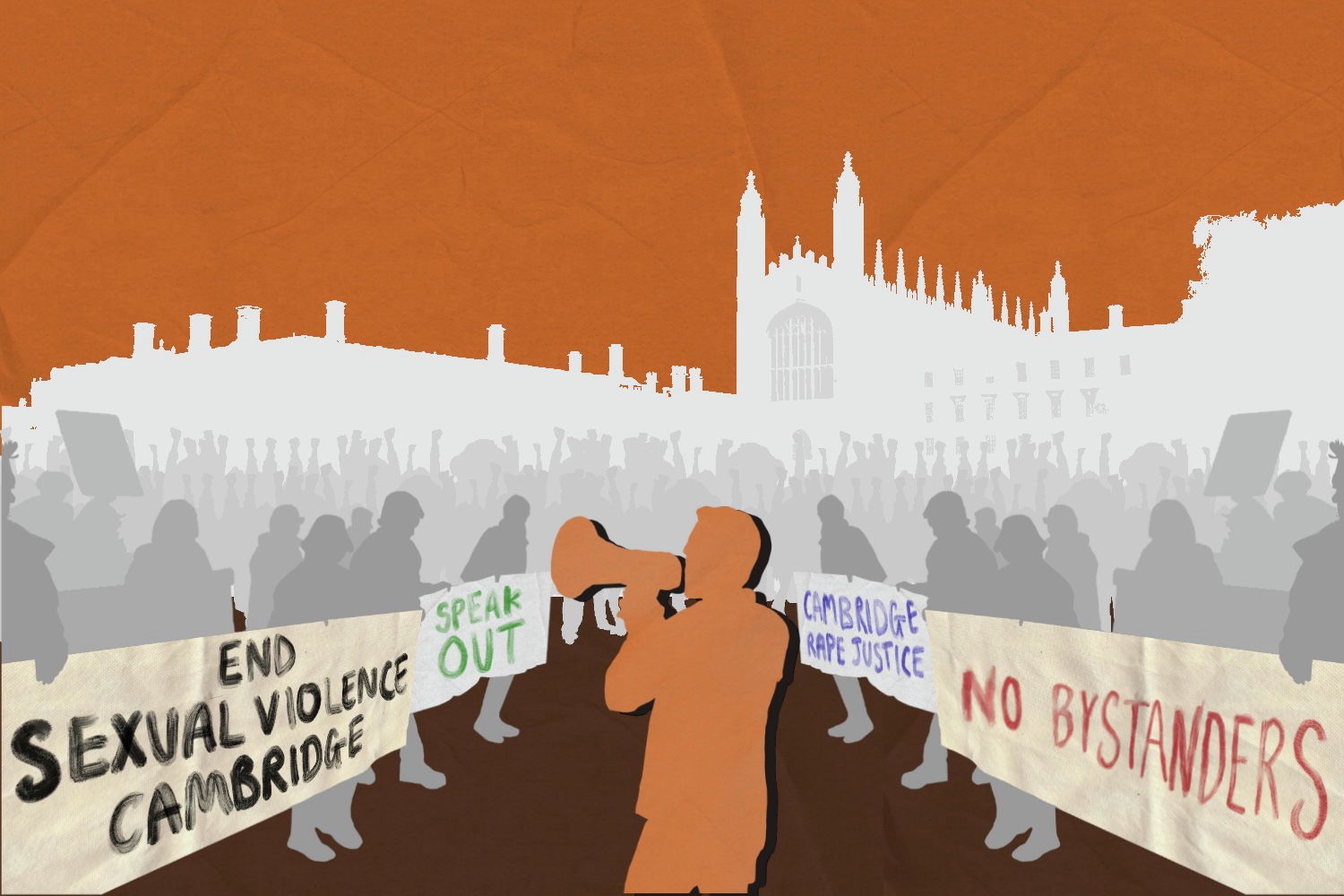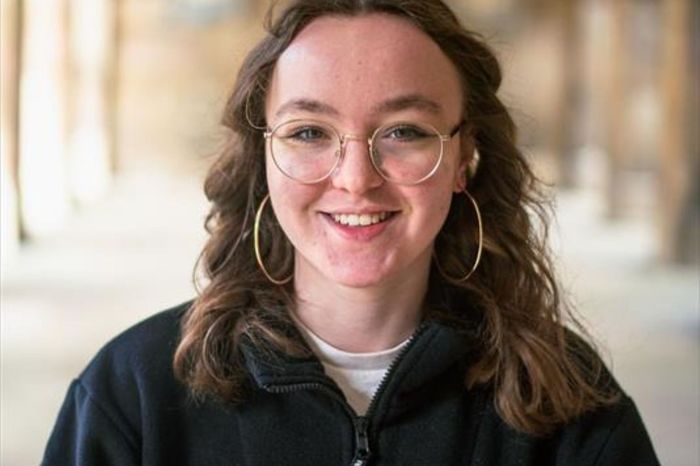This article contains discussions of sexual violence and rape culture.
Consent. It’s as simple as tea… right? Freshers file in for the mandatory consent talks, slotted in between Frash, bops, family night, and the endless rounds of ‘stats’ introductions. Surely something as vital as consent must make an impact beyond Freshers’ Week?
Within the last year, Cambridge has seen the emergence of three new societies: End Sexual Violence Cambridge, CASE (Coalition Against Sexual Exploitation), and Cambridge Rape Justice. Their message is clear. Sexual violence in Cambridge is an ongoing, stark reality that demands urgent action.
Pembroke JPC President Angus Ivory discusses plans for this year’s Freshers’ Week, which includes a Consent Workshop led by professionals from Dhiverse and a JPC welfare talk. He sees the JPC’s visibility as: “an opportunity, perhaps a duty, to make clear what behaviour is and isn’t acceptable”. Angus proposes additions to Dhiverse’s session, which include “a clarity-focused discussion to eliminate grey areas” and “example-based workshopping” in small groups. Discussing situational examples helps freshers learn from each other and understand that: “sexual assault is a real problem to be tackled”. He hopes this approach will: “empower freshers not to be bystanders and to get over the fear of calling a behaviour out”.
“Condition E6 marks a pivotal shift in universities’ approach to consent and sexual violence”
Students’ calls for cultural change at university have been echoed nationally. On 1st August 2025, the Office for Students introduced a new condition of registration E6, now mandatory for all UK universities. The guidelines include mandatory bystander training, rules on intimate staff-student relationships, and policies on prevention and reporting incidents. These guidelines now provide institutions with clear, standardised responses to harassment and sexual misconduct. Condition E6 marks a pivotal shift in universities’ approach to consent and sexual violence, while the new framework addresses university members’ appeals for accountability and a zero-tolerance approach.
Earlier this year, Pembroke’s JPC, with the help of the college’s HR department, decided to train officers in handling sensitive disclosures. Access Officer Harriet Ranson explains that the training aimed to help officers “learn the routes to support students and understand that they don’t have to carry the weight of a difficult disclosure alone”. The sessions included discussions and scenario-based exercises on how to listen and respond to various challenging disclosures. Post-training feedback showed officers felt “prepared should they have to listen to or report a disclosure”. Harriet emphasises the importance of the JPC’s role as “a trusted, student-supporting committee with officers that are approachable”. The training was a necessary step in allowing officers to “feel comfortable and empowered to listen to difficult disclosures and redirect issues where necessary”. She hopes this training continues for future officers, leading to a direct, positive impact on the college community.
Across the UK, there have been many recent examples of student activism against sexual violence. 2024 saw the University of Leeds launch its award-winning campaign Show Up for Leeds, which empowered its members by providing education on how to make a stand against sexual violence. Later that year, Queen Mary University of London participated in the global 16 Days of Activism Against Gender-Based Violence initiative, which hosted events, workshops, training sessions and more for the community. This wave of activism has also hit Cambridge. Fuelled by reports of an epidemic of rape and sexual assault across British Universities, End Sexual Violence Cambridge (ESVC) was founded to tackle this in Cambridge, pushing for accountability from the university and colleges. ESVC provides safe spaces, support, and education to empower survivors and drive lasting change. From issuing an open letter to the university on rape culture, investigating college reporting systems, to fundraising through their May Week dress design campaign, ESVC has been active on multiple fronts. The SU shortlisted ESVC for the Cambridge Students’ Awards 2025, recognising them for their Campaign Impact.
“End Sexual Violence Cambridge (ESVC) was founded to tackle this in Cambridge, pushing for accountability from the university and colleges”
Another emerging voice is CASE (Coalition Against Sexual Exploitation), dedicated to equipping and motivating students to fight sexual exploitation through events, interviews and discussion. President Ella Perkin recalls the Lent series ‘Let’s Talk About Porn’, noting that the topic “remains a taboo subject, all too often avoided rather than addressed”. She stresses the need for nuanced conversations about “how it feeds young people with violent and unrealistic depictions of sex and relationships”. A third-year Theology student who attended said she was “appalled” to hear about the “the injustices of the porn industry” and its links to sexual exploitation, describing “the sexualisation of violence against women evidenced in the increase in gender-based violence such as choking” as part of a “worrying trend”. In Michaelmas 2025, CASE will focus on sexual violence and practical solutions, such as improving the judicial process. Ella explains: “We as a society feel ill-equipped to handle such prevalent topics, which is partly why our whole approach is to connect experts with the students of Cambridge.”
Cambridge Rape Justice (CRJ) has fostered a more personal community conversation since their launch eight months ago. CRJ provides a supportive space for survivors of sexual violence and their allies, alongside raising funds for linked charities. Their Instagram, with their signature purple branding, promotes welfare events like yoga, craft, and termly Jack’s trips. CRJ President Lorna Beal described the “overwhelming support” that they have received so far and was “over the moon” with the £300 raised for Cambridge Rape Crisis Centre at their Easter term ‘Jam for Justice’. People “danced for a good cause” to the bands Open Return and Soft Crunchy Landing. She said, “Jam for Justice in particular gives me hope for the future”. The community is only growing, which “is always incredibly rewarding to see,” and CRJ is set to be a presence during Freshers’ week and beyond.
“The continued efforts from the whole of the university to enforce stringent training and raise awareness has never been more vital”
Lorna concludes by advising any survivors: “seek the advice of Cambridge Rape Crisis Centre and/or the Elms Sexual Assault Referral Centre (SARC). You do not need to report to the police to access these services. Consider seeking emergency contraception from a sexual health clinic or pharmacy if necessary.”
I reached out to Cambridge Rape Crisis Centre, who explained that: “We offer free, confidential emotional, therapeutic and advocacy support services, which can be used together or individually, and for as long as the survivor needs.” Survivors can be completely assured that “we listen and believe, something that is core to the services we offer”.
Consent is no longer another box to be ticked off during Freshers’ Week, then to be forgotten. It’s a vibrant, active and much-needed conversation continuing amongst students. As Angus notes, “with the growing popularity and influence of figures such as Andrew Tate amongst young people, the zero tolerance stance on sexual assault we need to maintain is at risk of being eroded”. In this climate, the continued efforts from the whole of the university to enforce stringent training and raise awareness has never been more vital.
If you have experienced sexual violence, please reach out for help. Contact the resource Cambridge Rape Crisis Centre.
Helpline: 01223 245888 or email: support@cambridgerapecrisis.org.uk.
Your voice matters, and you deserve to be heard.


